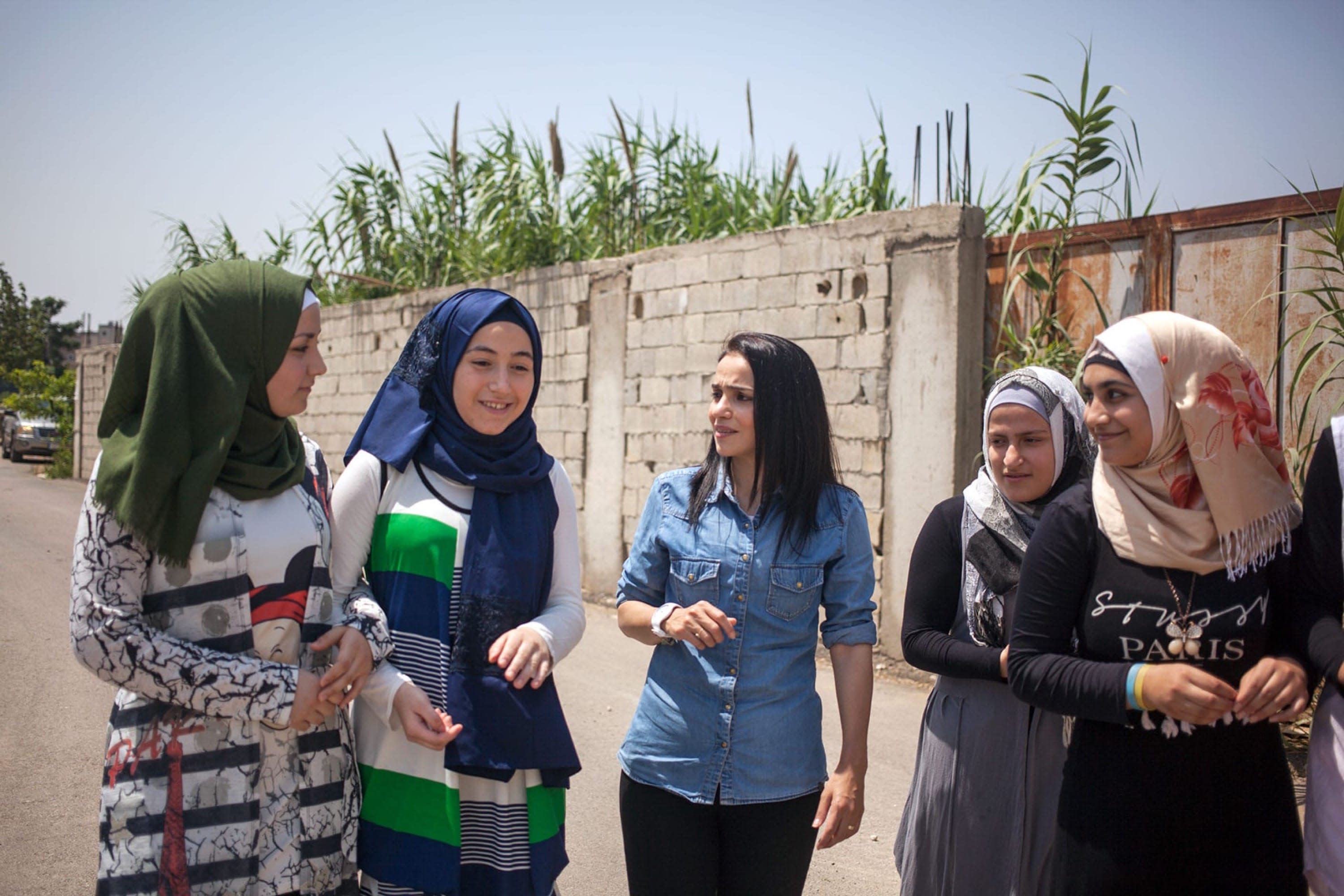The Issue
The issue
In crisis-affected settings, families often see child marriage as a way out of poverty or a means to protect their daughters from more violence. In 2019, around one-third of Syrian refugee girls in Lebanon were married before the age of 18, preventing them from completing their education.

Hiba’s approach
Policy ReformAs a young activist in Lebanon, Hiba saw how leaders failed to include the perspectives and experiences of young women in decisions made about their future. When she joined Naba’a in 2004 as the Education Programme Coordinator, she set out to change that dynamic by giving girls the tools they need to lead and advocate for themselves.
With her Malala Fund grant, Hiba lobbies parliament members, ministers, party leaders and religious leaders to raise the minimum legal age of marriage to 18. She also holds workshops to teach girls the risks of early marriage and the importance of education. Hiba helps girls develop their own local advocacy campaigns that challenge threats to education in their communities.
Hiba’s impact
Hiba’s impact
Since 2018, Hiba and Naba’a have trained 90 girls in leadership, public speaking and advocacy techniques and helped them launch their own advocacy campaigns in support of girls’ education. In 2019, after advocacy meetings with local leaders, Naba’a convinced local governments in nine cities to help host the organisation’s workshops and raise awareness among adolescent girls, their families, communities and local decision-makers about the negative consequences of child marriages.
During the 2018 U.N. General Assembly, Hiba joined Malala Fund at the 12 Years to Break Barriers and Leave No Girl Behind: Countdown to 2030 event to share her experiences as a local activist and call on heads of state to increase funding for refugee education. Following the event, the U.K. announced $10 million for better data on girls’ education, Denmark announced $70 million for Education Cannot Wait and the Netherlands announced $100 million for the Global Partnership for Education.
Hiba and her fellow Lebanese Education Champions are also working to develop lessons for the digital learning platform Tabshoura in a Box aimed at helping refugee students in middle school pass the Brevet exam, a national exam students need to take to continue with secondary education.

More about Hiba
There are 2 other Education Champions working in Lebanon.




